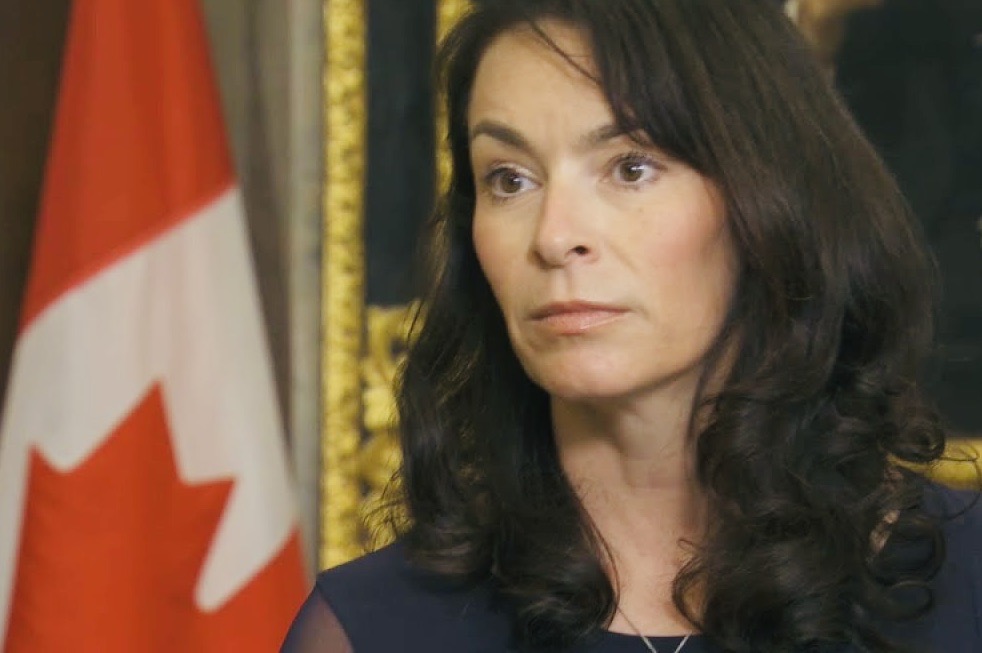A non-binding motion in support of peace in the Middle East was endorsed by Canada’s parliament on March 18 by a margin of 204-117. Brought to the floor by the left-wing New Democratic Party, it could hardly be described as a seismic shift in Canadian policy.
Acknowledging its toothless character, Foreign Minister Melanie Joly said that Canada’s foreign policy would not be changed on the basis of an opposition party resolution.
Introduced by Heather McPherson, the NDP’s foreign affairs critic, and sponsored by the party’s leader, Jagmeet Singh, it called on Prime Minister Justin Trudeau’s Liberal government to “officially recognize the State of Palestine.”

Unwilling to support the original motion, the Liberal House leader, Steve McKinnon, succeeded in watering it down so that it was aligned with Canada’s longstanding position on a two-state solution.
The NDP agreed to accept the amended version. Its language calling for unilateral Canadian recognition of a Palestinian state was replaced with language far more acceptable to the Liberals: Canada, along with its international partners, will work to achieve a “comprehensive, just and lasting peace in the Middle East” so that a Palestinian state can be established within the framework of a negotiated peace agreement with Israel.
This was a reasonable compromise.
Palestinian statehood should not be shoved down Israel’s throat, especially in the wake of the brutal attacks mounted by Hamas in southern Israel on October 7. These atrocities, having claimed the lives of roughly 1,200 Israelis and foreign workers and having traumatized Israel, ignited a war that still rages after nearly six months of combat.
Understandably enough, Israelis are still licking their wounds and are not psychologically ready for a Palestinian state within the foreseeable future. But eventually, they will have to come to terms with the necessity of a political solution to defuse Israel’s protracted conflict with the Palestinians.
Conflict management, a strategy pursued by Prime Minister Benjamin Netanyahu before October 7, clearly did not work. Nor will military force subdue the Palestinians, who are entitled to statehood on condition that they accept Israel’s existence and legitimacy as a Jewish state and are fully prepared for genuine coexistence.
In the meantime, Israel should heed the advice of its friends in the United States and other Western countries and work to carve out transitional pathways toward a demilitarized Palestinian state in the West Bank and the Gaza Strip.

All but three Liberals — Anthony Housefather, Ben Carr and Marco Mendicino — and every NDP, Green Party and Bloc Quebecois member voted for the motion. The Conservative party unanimously rejected it, with deputy leader Melissa Lantsman denouncing it as a “blind sell-out to the forces of evil.”

The chief executive officer of the Centre for Israel and Jewish Affairs, Shimon Koffler Fogel, was “angered and deeply disappointed” by it, accusing the Liberals of choosing to “effectively sub-contract Canadian foreign policy to anti-Israel radicals within the NDP and the Bloc Quebecois.”
Neither Fogel nor Lantsman got it right.
The motion, though far from perfect, strikes a comparatively fine balance and calls for the release of all hostages held by Hamas. It does not support sanctions against Israeli officials accused of “inciting genocide.”
The Liberals agreed to the NDP’s demand for an immediate ceasefire in the Israel-Hamas war, but added the stipulation that Hamas “must lay down its arms.” Trudeau’s government, having been critical of Israel of late, had already endorsed an immediate truce.
Israel correctly rejects a long-range ceasefire as it wages a campaign to destroy Hamas’ military capabilities and remove it from power once and for all.
It should also be noted that the Liberals adjusted a clause in the motion regarding Canadian military exports to Israel, which are a drop in the ocean compared to Israeli arms purchases from the United States. The Liberals, disagreeing with the NDP’s demand to “suspend all trade in military goods and technology with Israel,” agreed to “cease the further authorization and transfer of arms exports to Israel.”

It is unclear why the government decided to do this, but in all fairness to Israel, this clause should not be enforced. As an ally of Canada and as a nation fighting a war of self-defence against a monstrous organization that opposes a two-state solution, Israel is surely entitled to buy Canadian military equipment.
As previously announced, the Liberals agreed to maintain funding to UNRWA, the United Nation’s Palestinian relief agency which assists Palestinians in Gaza and elsewhere in the Middle East. To its credit, the government added language to the motion supportive of “long-term governance reforms” and “accountability measures” at UNRWA and of an internal investigation into compelling Israeli evidence that some members of its staff participated in the October 7 massacre.
This package of parliamentary measures more or less leaves intact Canada’s current policy on the Arab-Israeli conflict, notwithstanding Trudeau’s increasingly critical tone toward Israel in recent weeks.
